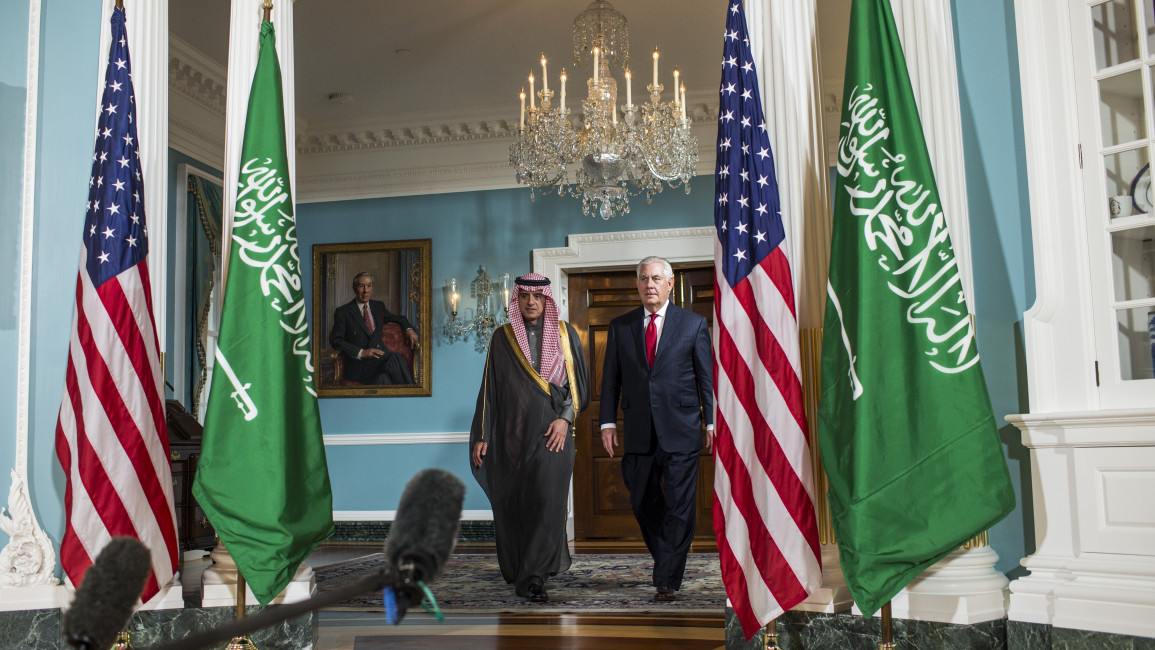
Trouble in paradise: Can Biden mend the rocky US-Saudi relationship?
When a comedy sketch on Saudi TV went viral recently, it set people talking in Washington. The sketch depicted a senile President Joe Biden being manhandled by his staff – not exactly ground-breaking comedy, and hardly unique among international portrayals of the president. But for observers of the Gulf kingdom, it was worth noting.
Known for its severe state censorship, the Saudi sketch was likely sanctioned by someone in authority. And for those willing to infer, such a disobliging portrait of the US president tallied rather well with the frosty relationship between the two countries.
Saudi Arabia, and especially its crown prince, Mohammad bin Salman, believed it had a special relationship with the previous administration of Donald Trump. In the reductive world of American domestic politics, this meant instinctual hostility from the press and the Democratic party, which the Saudis hardly helped by murdering a journalist with American ties, Jamal Khashoggi, in Istanbul in 2018.
It has not helped that the war in Yemen is considered entirely the Saudis’ fault by the American left, and that Yemen has become a byword for international depravity since the Saudi intervention in that war began in 2015.
" [The Democrats] have kept up this opposition, reciprocated by the Saudis, even when circumstances in international politics have forced the two erstwhile allies together"
Primed by these human rights concerns, and opposed to carbon-emitting oil producers too, the Democrats arrived in the White House hostile to the kingdom. And they have kept up this opposition, reciprocated by the Saudis, even when circumstances in international politics have forced the two erstwhile allies together – most recently through the American-led drive to sanction Russia in the wake of its invasion of Ukraine, and to deprive Vladimir Putin’s regime the profits of its fossil fuel economy.
The roots of Saudi discontent go deeper. This year has given rise to increasingly loud Saudi complaints that they have been thrown to the Houthi wolves - the Iranian-backed militia fighting and winning the war in Yemen - by the United States.
For several years, the Houthis and their Iranian allies have launched ballistic missiles targeted at Saudi cities and sites of importance in its oil economy. Late last year, the Saudis claimed the total number of missile attacks had topped 430. The missiles have destroyed oil depots and tankers, doing more damage to the Saudi economy than is often supposed and shaking confidence in a crucial and immobile sector.
Saudi Arabia's regional foreign policy options amid US decline ⬇ https://t.co/m4gsG0I0cu
— The New Arab (@The_NewArab) December 12, 2021
Saudi officials increasingly complain that America has licensed attacks on the Saudi economy and its cities by failing to respond – there is criticism, condemnation, but nothing practical. Some in Riyadh fear that, for the Americans, this is retribution for the Saudi war.
The Houthis were delisted as an international terrorist organisation by the Biden administration when it came to power, and attempts to redesignate them as a terrorist group face strong institutional resistance.
In an apparent season of diplomacy across the Middle East before Russia’s invasion of Ukraine, the Saudis felt isolated. They acted as though they were at the mercy of a strengthening Iranian regional campaign of Shia proxy forces aligned powerfully against Saudi Arabia, the United Arab Emirates, and Israel.
That fear has not abated, and the Saudis blame the Americans for it. At a time when the United States needs Saudi assistance more than it recently has, this sort of diplomatic rift is unwelcome and unproductive.
Biden has requested that Arab oil producers in OPEC increase oil production in a bid to increase oil supply, decrease prices, and thereby not only relieve hard-pressed consumers, but also decrease the profitability of Russian energy exports.
Persistent Saudi unwillingness to increase oil exports to lessen the pain of high prices, and to swamp Russian exports is therefore a clear rebuff, and marks a notable souring of relations between the two nations.
American analysts are largely blistering. They consider this the height of uncooperative ingratitude. Josh Rogin at the Washington Post (which employed Khashoggi and has beatified his memory) says in a recent essay that if the Saudis were true allies, true partners against Russia, they would act like it.
The Saudis are not alone in this, of course. Several countries with close diplomatic ties to the United States, including some of its closest allies in the Middle East, have not joined either the public condemnation of Russia’s invasion or made the bold economic steps encouraged by others to sanction Russia and its oligarchs. The UAE hosts many thousands of expatriate Russians and their money.
"Whatever fashionable opinion is in Washington, the Saudis remain de facto partners of the United States. While fossil fuels are still necessary for powering the world, they will continue to be significant. It is fantasy to pretend otherwise"
Egypt, which is in a broad diplomatic coalition with the Saudis and Emiratis, finds itself facing food shortages and high prices as a result of Russia’s invasion. Still, Egypt has proven so unwilling to criticise Putin’s war that this has prompted Ukrainian protest.
More sympathetic analysts consider Egypt’s position to be so difficult that it has little room to manoeuvre. Critics claim that President Abdel Fatah el-Sisi is too much the dictator in Putin’s mould to be moved to condemn a Russian war.
All of these allies feel bitterly that the United States under Biden has neither wanted nor especially cultivated their cooperation. This is an opportunity, in the depths of crisis, to demonstrate not only independence of mind, but also how important they can be when the situation requires their help.
Similarly, whatever fashionable opinion is in Washington, the Saudis remain de facto partners of the United States. While fossil fuels are still necessary for powering the world, they will continue to be significant. It is fantasy to pretend otherwise.
While this situation remains true, even as hostile an administration as this one ought to recognise the necessity in playing nice. A recent essay in the Wall Street Journal suggested that, finally, such a thaw may be beginning. It seems rather optimistic.
There are other options. The Biden administration could yet follow its heart and its ideologues and formally cut the Saudis loose. Other partners could theoretically be found. It would be difficult. It would take time. And it would make Americans poorer in the short term.
But this is what the people currently in the White House have longed to do. The Saudis know this to be true. And they are wringing all they can from the tension between the administration’s ideology and the painful necessity of dealing with such a terrible war on European soil with the allies America has.
James Snell is a writer whose work has appeared in numerous international publications including The Telegraph, Prospect, National Review, NOW News, Middle East Eye and History Today.
Follow him on Twitter: @James_P_Snell
Have questions or comments? Email us at: editorial-english@alaraby.co.uk
Opinions expressed here are the author's own, and do not necessarily reflect those of her employer, or of The New Arab and its editorial board or staff.




